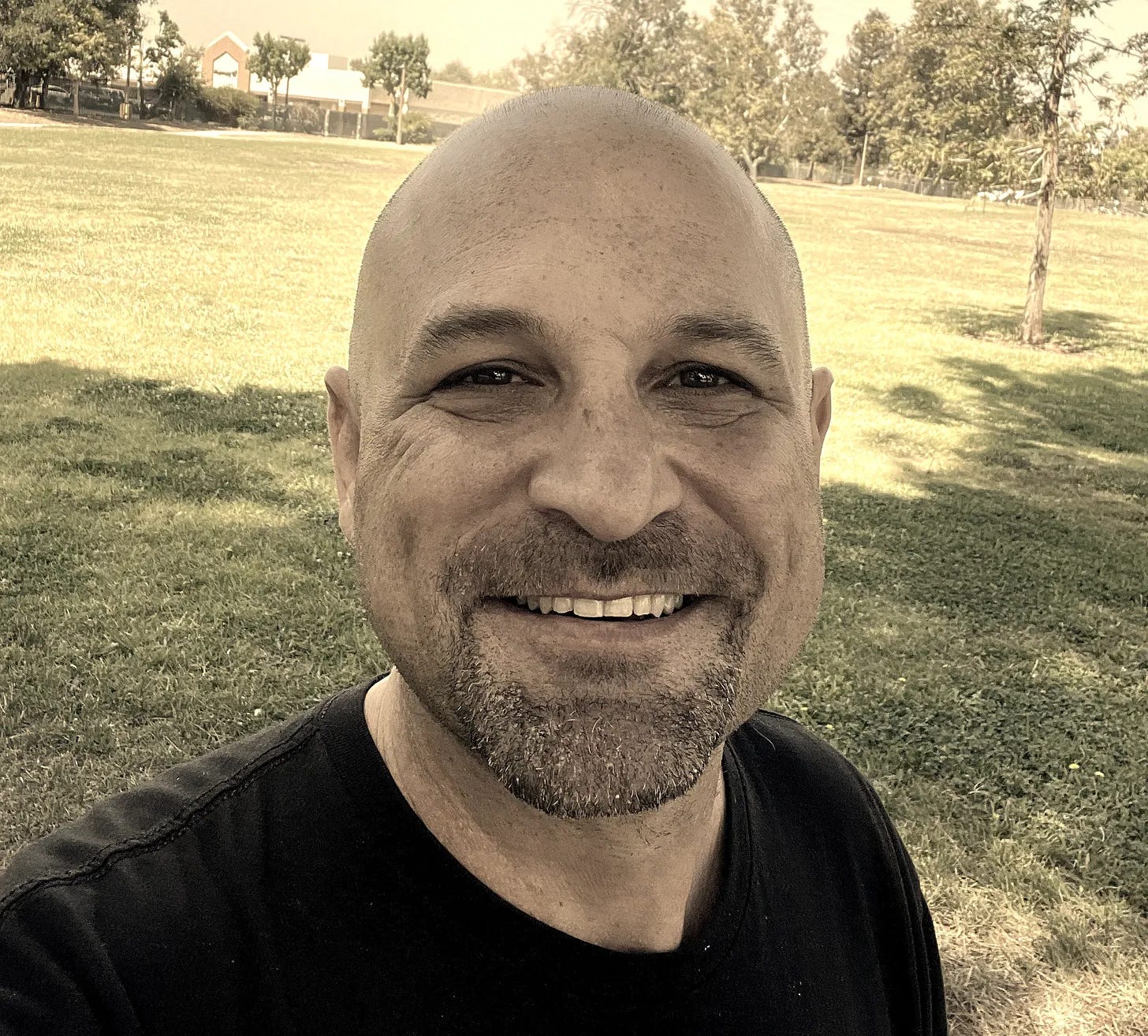Vipassana is ten days of silence, but silence is only the surface.
It is waking at four to the clang of a gong,
walking through darkness toward a hall that holds seventy strangers,
all of us forbidden to speak,
forbidden even to meet one another’s eyes.
Ten hours of meditation a day, ten individual one-hour sits on a thin cushion,
no phone, no notebook, no escape.
Breakfast at dawn,
lunch at eleven,
then nothing but tea for dinner.
Simple food, eaten in silence with 70 other humans,
every sound, the scrape of a spoon, the shift of a chair… suddenly immense.
This was me in Macedonia last summer
a room I revisit often in my mind
on the edge of Lake Ohrid,
the oldest lake in Europe.
We sat together by that lake,
yet alone inside our own bodies.
The practice sounds simple.
Notice the breath.
Scan the body.
See sensation arise.
See it fall.
Do not grasp.
Do not resist.
Stay.
On the first day, my knees caught fire.
My back screamed.
The thoughts roared...oh, did they roar!
I can’t do this.
Why am I here?
How do I leave?
And yet, without anything from me,
the pain shifted.
Burn turned to numbness,
numbness to tingling,
tingling back to ache.
Nothing stayed the same.
Goenka’s (who brought Vipassana to the world) voice carried through the hall each evening:
“Anicca, anicca, anicca.”
It means: "impermanence, impermanence, impermanence."
Not philosophy.
Not belief.
Reality.
Everything, thoughts, feelings, cravings, aversions
arises, passes, arises, passes.
That was the lesson:
the truth carved into the body itself.
Not someday, not in theory,
but right now,
in every flicker of sensation.
The world outside feels the same as that hall.
Loud, restless, agitated.
Always demanding your reaction.
But the teaching doesn’t change.
Sit still.
Watch it rise.
Watch it pass.
There were phrases we carried like lifelines.
At the beginning of each of the 10 meditations each day, Goenka would say:
“Start again. Start again.”
Not a scolding, but an invitation.
Start again when you drift.
Start again when you fail.
Start again when you forget.
“Craving is misery. Aversion is misery.”
It is not the thing itself that causes suffering,
but how we clutch it or push it away.
The way we try to hold joy in a fist.
The way we exile grief as if it has no place.
Both make us ache more.
One morning after I returned home,
I sat down and watched the light spill across the table.
For a moment, I wanted to hold it there,
to trap it,
to keep its warmth.
Then I smiled.
Anicca.
It was beautiful because it moved.
Equanimity, a massive lesson I learned, is not detachment.
It is caring without collapse.
It is feeling fully without drowning.
It is knowing that nothing holds forever,
so you stop treating each wave like it will.
Daily practice looks small.
Most mornings, or in between meetings, I still sit formally,
scanning every inch of my body.
Other days I don’t.
Some days it comes walking the streets of Lisbon,
noticing air on my face.
Or simply stirring a bowl of food,
catching the spark of irritation when it spills.
The form shifts.
The principle stays.
Here is my invitation to you.
The next time anger from things like scrolling on your phone hooks you,
or perhaps world politics tugs you,
or heaviness presses into your chest from a decision you have to make at work,
pause.
Close your eyes if you can.
Take one breath.
Notice your chest, your jaw, your belly.
Don’t fix it.
Don’t force it away.
Just notice.
Wait.
See how it shifts.
Because it will.
That is the promise of impermanence.
The wave will crest and fall.
The ache will soften.
Even joy, when you try to hold it, will dissolve.
Everything changes.
Goenka’s words echo still:
“Work diligently, patiently, persistently.
You are bound to be successful.”
Not in titles or applause,
but in seeing life as it is.
In choosing not to harm when you hurt.
In finding balance in the middle of chaos.
This is the work.
The pause before words.
The breath before action.
The softness in the face of what feels sharp.
Not once.
Not later.
Right now.
Start again.
Patiently.
Persistently.
Anicca, anicca, anicca.
And here is the stone for your pocket:
nothing you feel right now will last.
Everything is impermanent.
-Stay human
Bryan
PS: Do you meditate? If not, what stops you? If yes, what do you receive from it?
* Share in the comments, I’d love to read and respond.
You are reading BEing Human, a weekly newsletter about an honest exploration of trust, leadership, and mindfulness from the bestselling author of Human-to-Human and Shareology, CEO, and TEDTalker. Written by Bryan Kramer, an executive coach and advisor to Fortune executives, we dive into what it means to lead ourselves in life, business, and the moments that matter most.
Top Recent Popular Posts:
Main Character Syndrome - Your life is not a supporting role.
10 Days of Silence - What I learned from a 10-day silent Buddhist retreat in Macedonia
The Currency of Being Liked - Choosing yourself in a world that profits from doubt.
Why Meditation Isn’t Just About Relaxing - It’s Rewiring -The four stages of meditation
Interested in Coaching or hiring me to speak - drop me a note



Bryan, yes, I take time for myself and I meditate daily. What I receive is more and more of my life, of this life. I receive more of myself to offer.
Love when you say, "the practice is small". Small and simple - starting again, returning again. This is the practice. It makes us more resilient and more loving for everything else. It is all here. Sending love and gratitude.
I dmed you when you get a chance to take a look and respond. xo